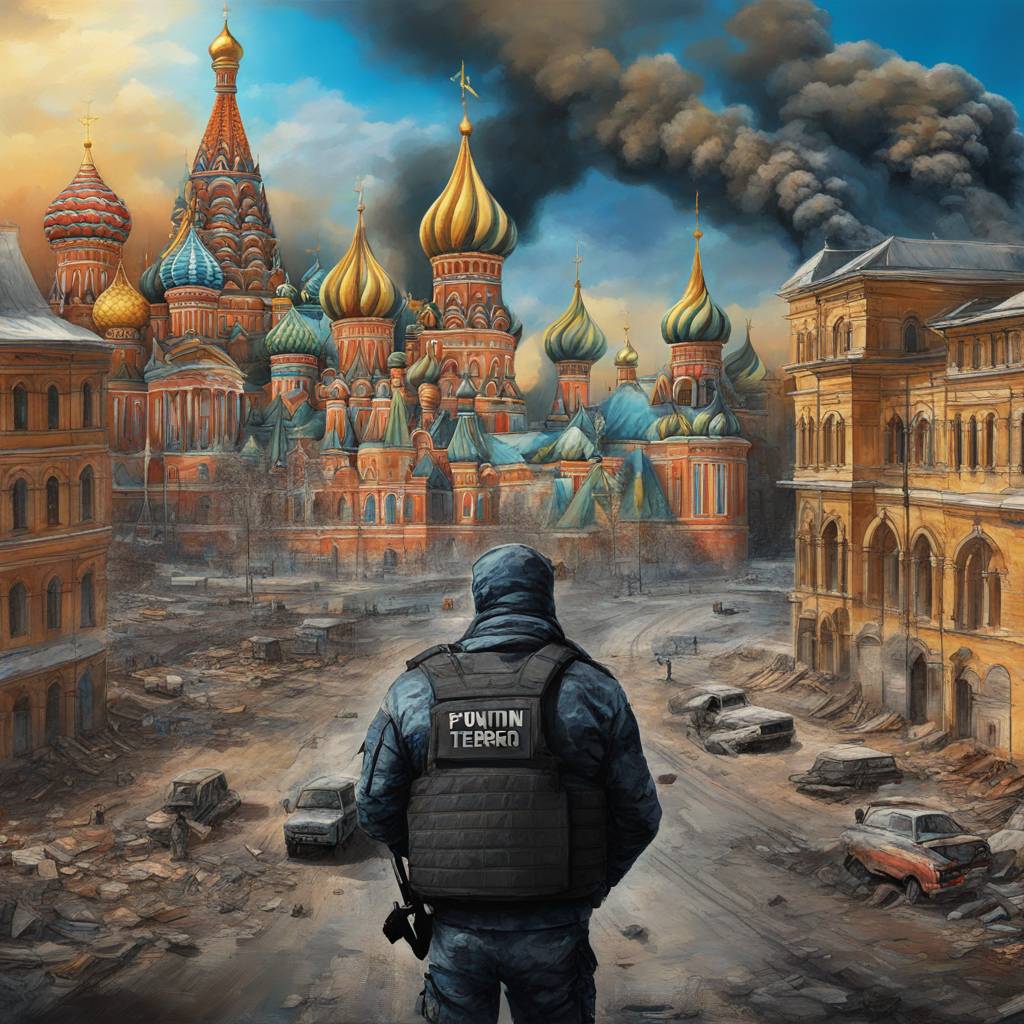Russian President Vladimir Putin has acknowledged that radical Islamists were behind the recent terror attack in Moscow, blaming the Afghanistan-based Islamic State group IS-Khorasan for the mass shooting at the Crocus City concert hall in Krasnogorsk. At least 139 people were killed in the attack, with Putin claiming that the suspects were apprehended while trying to flee to Ukraine, implying a link to Russia’s conflict with Kyiv. However, Ukraine denied involvement and accused Putin of orchestrating the attack, a claim made without evidence. The U.S. Embassy had previously warned of imminent plans by extremists to target large gatherings in Moscow, with intelligence later confirming IS-K’s responsibility for the attack.
In a televised address, Putin suggested that Ukraine may have ordered IS-K to carry out the terror attack, claiming that the U.S. was trying to convince other countries that Kyiv was not involved. He asserted that the attack was part of ongoing attempts by those at war with Russia since 2014 through the Kyiv regime, calling for further investigation into who ordered the atrocity. Ukrainian President Volodymyr Zelensky dismissed Putin’s accusations, calling him “sick and cynical” for trying to blame Kyiv for the attack. Zelensky criticized Putin for fueling terror for decades and claimed that once Putin is gone, the demand for terror and violence would disappear as well.
The U.S. State Department and Ukrainian Ministry of Foreign Affairs were contacted for comment following Putin’s accusations, but did not respond. The exchange of accusations between Russia and Ukraine further complicates the already strained relations between the two countries, with the terror attack adding another layer of tension. Putin’s claims of Ukrainian involvement in the attack highlight the ongoing conflict in the region and the propaganda war being waged between the two sides. Zelensky’s dismissal of Putin’s accusations reflects the deep distrust and animosity between the two leaders.
The U.S. Embassy’s warning of potential attacks in Moscow underscores the ongoing threat of extremism and terrorism in the region, as well as the need for heightened security measures. The claim by Putin that Kyiv may have had a role in ordering the attack raises questions about the motivations behind such a claim and the potential consequences for relations between Russia and Ukraine. The involvement of IS-K in the attack highlights the global reach and influence of extremist groups, posing a significant challenge to international security and stability.
Overall, the Moscow terror attack serves as a grim reminder of the persistent threat of terrorism and extremism, as well as the complex geopolitical dynamics at play in the region. Putin’s attempts to shift blame onto Ukraine and the U.S. raise concerns about the potential for further escalation in the conflict, while Zelensky’s response reflects the deep-seated animosity between the two leaders. Moving forward, international efforts to combat terrorism and address the root causes of extremism will be crucial in preventing future tragedies like the one that occurred in Moscow.








